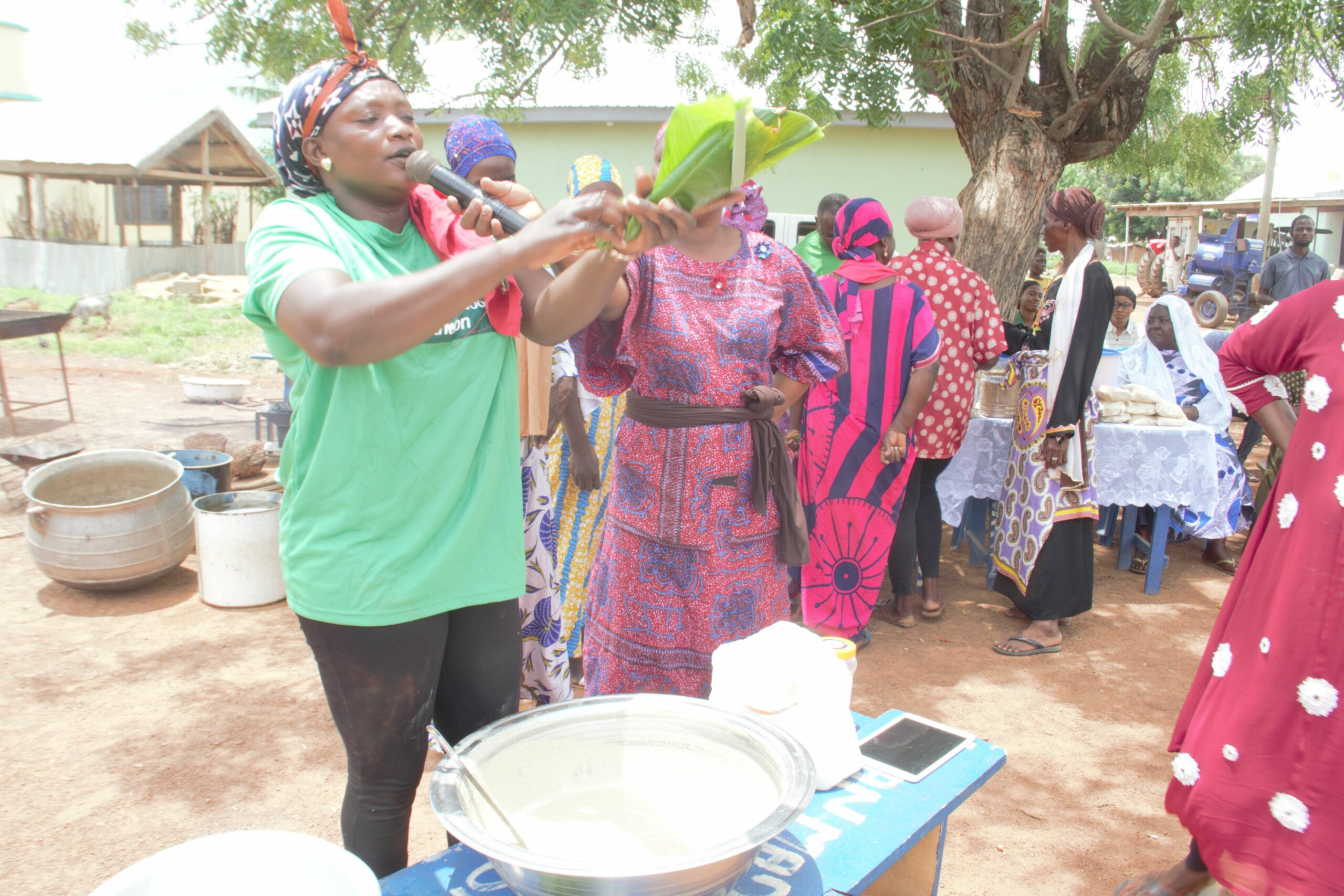For the last three years, the WISE project has supported women farmers and aggregators to ensure they are economically empowered and have improved well-being and inclusive economic growth. Selected women farmers have been provided the necessary support to increase farm yield, ranging from improved soybean seeds for planting, ploughing their fields, and providing inoculants. Aside from the support for soybean production, the project has also introduced some of these women to green businesses, including mushroom, snail, and honey production.
The WISE project goes beyond supporting women to become economically capable. The project also prioritises the nutritional well-being of the communities, especially women and children. To ensure this, the WISE project team at URBANET organised a two-day Food Exhibition and Nutritional training with the help of a few experts.
The two-day programme was executed in two communities within the Tolon and Kumbungu districts in the Northern Region, with over thirty participants participating in each community. These participants were selected to represent the various communities in which the project is being executed. The key purpose of the training was to ensure that women were able to initiate businesses by adding value to the raw products they produced or harvested. It was also aimed at introducing the women to the various ways they could utilise their produce and transform it into meals that are nutritionally beneficial for them. The major food products that were used in the training included soybeans and mushrooms, as these two are the major foods produced by a majority of these amazing women.
The main aspect of the event was taking the women through how they could incorporate soybeans and mushrooms into various meals to enhance their nutritional status. They were taken through the preparation of both local foods that are common in their households and healthy paps for the infants. Some of the meals included soybean kebab (as a substitute for meat), soymilk, “tuubani”, mushroom pap, “tombrown”, and some mushroom beverages, amongst others. As important as it is for these women to adopt these nutritional ways of feeding, they were encouraged to use this as an opportunity to start a business venture and make use of previous training on branding and marketing to grow them.

